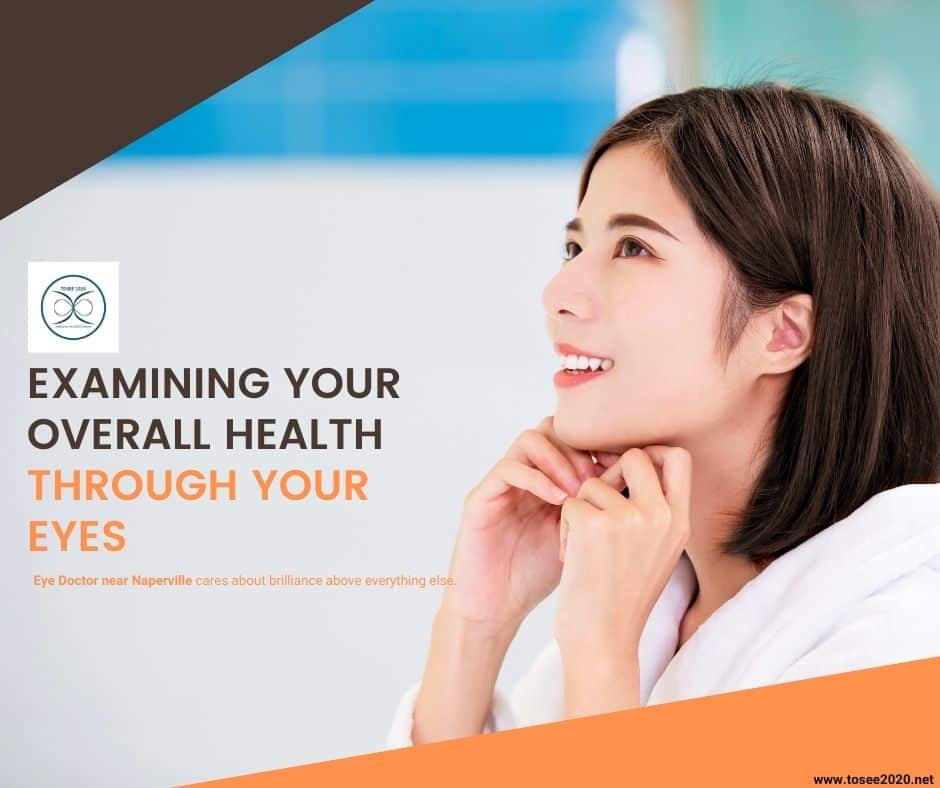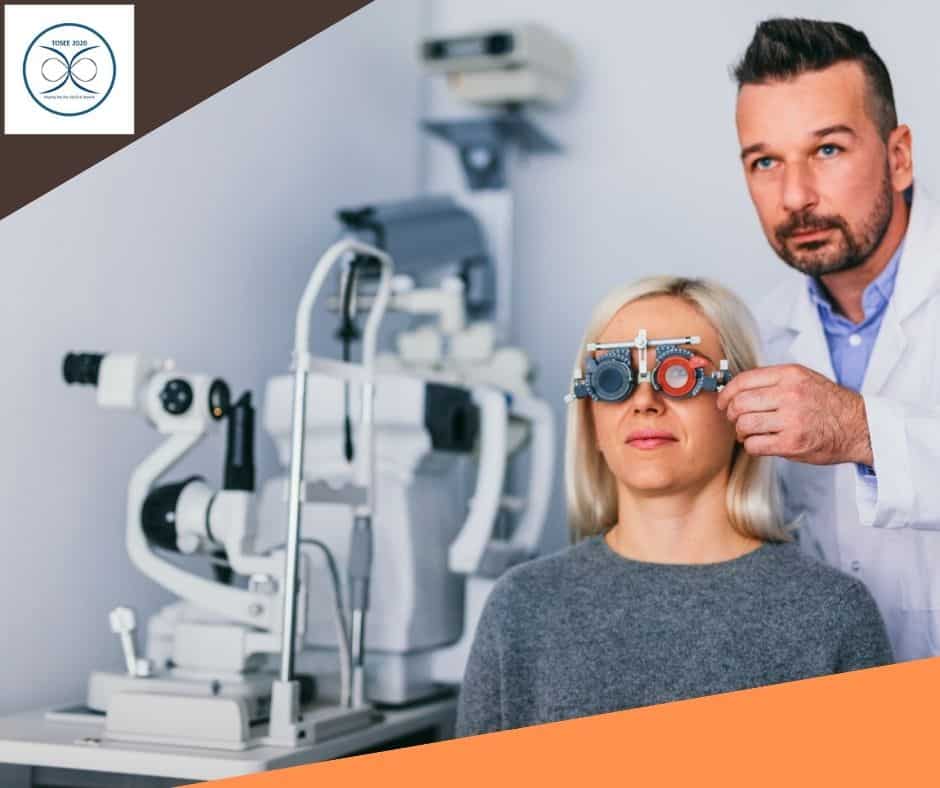Examining Your Overall Health through Your Eyes From Eye Doctor near Naperville
It’s important to keep in mind that the eyes are linked to lots of other systems in the human body. That makes routine eye exams an imperative part of preventative healthcare, notwithstanding your age or physical health. All-inclusive eye exams not simply include testing your vision, but moreover give Eye Doctor near Naperville a close-up look within the eye, counting blood-nerve vessels, and veins all of which may include signs of conditions that affect your general health.
A few of these conditions can be fairly serious, which means that an eye exam can help in saving your life. The earlier an issue is noticed, the better the chances of successful healing. Other health conditions that possibly will show symptoms in the eyes comprise aneurysms, autoimmune, disorders, liver disease, multiple sclerosis, Parkinson’s disease, sickle cell disease, tumors, thyroid disease, and additional brain or neurological disorders. Only inclusive eye exams will help in detecting these conditions for the reason that they appraise total eye health; sight tests will only measure how fine you see.

Eye Dr near Naperville has shared six health conditions Your Eyes May Reveal, which are as follows:
- High blood pressure. Hypertension frequently goes unnoticed, but kinks and twists in the small blood vessels of the retina can be early warning signs.
- High cholesterol. In younger adults, a grayish ring around your cornea might indicate high cholesterol and major triglycerides, two markers that put you in major danger of a heart attack or stroke. In older adults, this coloration is normal but is not linked to high cholesterol.
- Lots of people have diabetes without recognizing it. A few of the revealing indications including damage to the blood vessels and retina turn up in eye tissue before being exposed in a blood sugar test. Little blood vessels in your eye can split and seep out the yellow-tinged liquid into the retina, which is a red flag for diabetic retinopathy, a situation that can source vision loss if it goes untreated for too long.
- Certain cancers. Disfigurations and Sores on the eyelid or near the lash line could be a type of skin cancer known as basal cell carcinoma. A change in the color of your eye, dark spots in the back of the eye, or other little defects on your iris can sometimes indicate a different type of cancer recognized as visual melanoma.
- Thyroid disease. Bloated, even bulging eyes are a normal symbol of an overactive thyroid – says optometrist near Naperville.
- Autoimmune diseases. Inflammation marked in the eyes or optic nerves and weak, tired out eyelids could be early signs of lupus, manifold sclerosis, or other autoimmune disorders. Lop-sided or irregularly shaped pupils, weak eyelids, and irritation or damage to the blood vessels in your eyes can all point out that something may be muddled.
Eye Exams:- How Often and What to Expect?
The Eye Doctor near Naperville recommends all adults get a baseline eye exam from an optometrist, a medical doctor who specializes in the analysis of eye conditions and diseases and the medical and surgical treatment of those conditions — by age 40 when early symbols of disease and vision changes possibly will begin to occur. If you have an eye disease or a risk factor for developing one, for example, diabetes, family history, or high blood pressure of eye disease, you should see a professional optometrist even if you are younger than 40 years old.
Adults of age 65 and more should have an inclusive eye exam every one to two years, or as suggested by your optometrist. Some seniors possibly will need more regular eye exams if they have a condition or disease that can impact their eyes.
An eye exam is a comparatively comfortable and simple procedure, and shouldn’t take added than 45 to 90 minutes. Your Eye Doctor will check:
- The front part of your eye
- Your side vision
- Your visual acuity
- Your medical history
- Your eye movement
- Your pupils
- Your prescription for corrective lenses
- Your eye pressure
- Your retina and optic nerve
Our eye evaluations are the most excellent for you:
- High blood pressure. Hypertension habitually goes unnoticed, but kinks and twists in the small blood vessels of the retina can be early caution signs.
- High cholesterol. In younger adults, a dingy gray ring around your cornea may signal high cholesterol and elevated triglycerides, two markers that put you at a better risk of a attack or stroke. In older adults, this coloration is common but isn’t associated with high cholesterol.
- Lots of people have diabetes without knowing it. In actual fact, several of the snitch signs, counting injure to the blood vessels and retina, show up in eye tissue before being revealed in a blood sugar test. Tiny blood vessels in your eye can break and leak yellow-tinged liquid into the retina, which is a dangerous for diabetic retinopathy, a state that can result in vision loss if it goes unprocessed for extended time.
- Certain cancers. Disfigurations and Sores on the eyelid or near the lash line could be a kind of skin cancer recognized as basal cell carcinoma. An alteration in the color of your eye, dim spots in the back of the eye, or other minute defects on your iris can occasionally point out a diverse kind of cancer known as visual melanoma.
- Thyroid disease. Inflated, even bulging eyes are a general sign of an overactive thyroid.
- Autoimmune diseases. Irritation spotted in the eyes or optic nerves and weak, tired eyelids could be early symbols of lupus, several scleroses, or other autoimmune disarrays.
Our eye evaluations are the most excellent for you:
Lots of eye care services providers are interested only in volume and getting patients in and out of the office rapidly. Eye Expert near Naperville cares about brilliance above everything else. Their goal is to make sure that your vision is as best as it can be and that your eyes are well. That is why they offer all-inclusive eye health evaluations and various treatment options that are executed in our office, together with the required follow-up to personally monitor your growth. When optometrists mark something strange throughout your exam, they possibly will refer you back to your prime care physician or a professional for additional assessment and testing.

